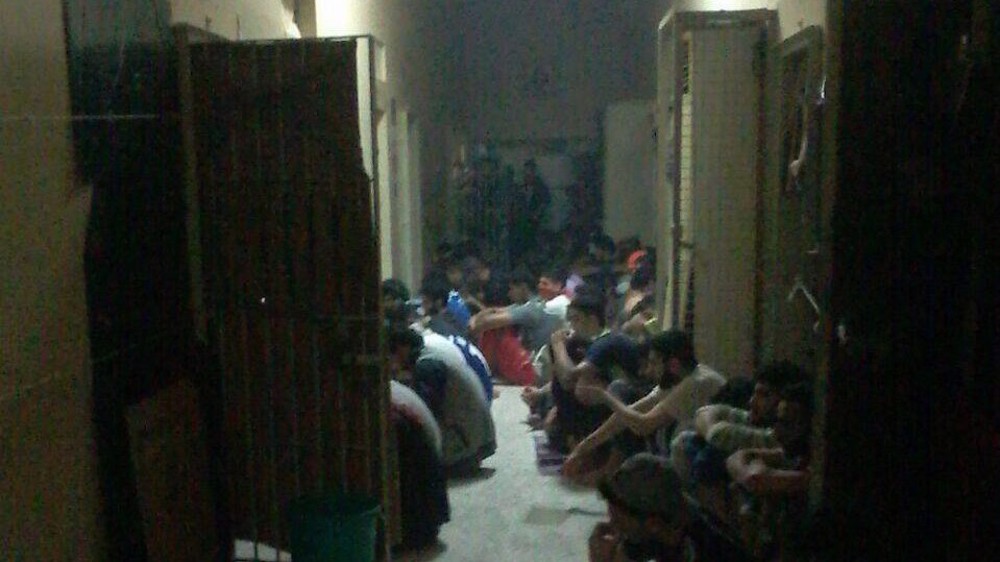
Al-Miqdad, 62, is the founder of a Shia opposition political group in Bahrain. He has been in prison for 11 years and is serving a life sentence for his role in the 2011 uprising.
He was due to be transferred out of the notorious Jau Prison on Tuesday for an external medical appointment. Still, before the transfer he was told that a doctor would not be present, al-Miqdad recounted in a phone call with Sayed Ahmed al-Wadaei, director of advocacy at the Bahrain Institute for Rights and Democracy (Bird).
He said he would not attend the appointment if there were no doctors, therefore, asked by a prison officer to sign a statement, declaring that he was rejecting medical treatment, but al-Miqdad refused.
His refusal to sign the statement was met with aggression, he told the rights group, adding that a group of officers attempted to beat him while verbally abusing him.
Other officers intervened and stopped the physical assault before he was returned to his cell, he said.
"This is a violent assault attempt without any exaggeration," al-Miqdad said. "The reason is revenge, aggression, injustice, and targeting."
The Bahraini ministry of interior dismissed his report as "incorrect," saying "there was no mistreatment or infringement."
However, according to Bird, al-Miqdad has been subjected to "deliberate medical negligence," despite suffering a range of health conditions, including chronic headaches, swelling in his leg which restricts his movement, cataracts in his eyes, and a slipped vertebrae disc.
In his phone call with the rights group, he also held the UK government accountable for this situation urging it to pressure Manama to stop human rights abuses.
"I hold the UK government responsible for this situation because they defend and protect [the Bahraini authorities]," he said. "They should stop promoting human rights if this is how they are acting. Aren't we humans? Their eyes were blinded by oil and their ears were shut by interests so let them move away from human rights."
Official government data reveals that UK government funding for Bahrain more than doubled this year.
Last August, the government disclosed the fund was aiding Bahrain's interior ministry and four oversight bodies that have a responsibility, in some capacity, for political detainees whose treatment has been criticized by rights groups.
In mid-September, the Bahrain Centre for Human Rights (BCHR) said in a report that Bahrain, under the ruling Al Khalifah dynasty, has the largest number of imprisoned rights activists, and it is estimated that there are some 4,500 campaigners being held behind bars across the country.
Jau Prison, where al-Miqdad is being held, is the largest long-stay male prison in Bahrain. Located in the village of Jaww on the southeastern coast of Bahrain, the prison has an official maximum capacity of 1,201, but rights groups estimate at least 2,700 inmates are being held there. Most are classified as political prisoners held in connection with their anti-government activism during the Arab Spring uprisings in 2011.
Demonstrations have been held in Bahrain on a regular basis since the popular uprising. People demand that the Al Khalifah regime relinquish power and allow a just system representing all Bahrainis to be established.
Manama, however, has gone to great lengths to clamp down on any form of dissent.


No comments:
Post a Comment